Brand "X" End-Cab Diesel Locomotives |
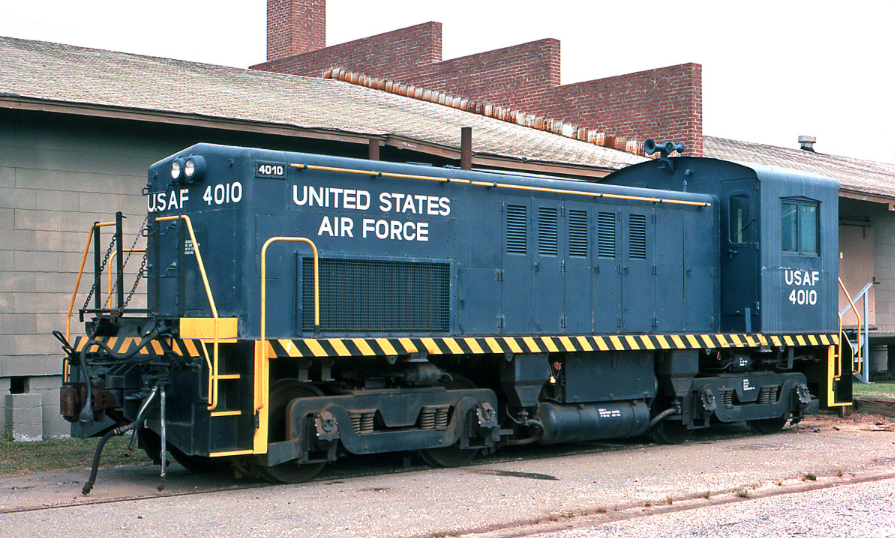
Baldwin-built RS4TC #4010 at Shaw AFB, SC (Sid Vaught photo)
|
Since the earliest days of railroads' use of the internal combustion engine, nearly every
manufacturer of industrial or military locomotives has produced some form of end-cab motive
power. They have ranged in size from small two-ton mining "mules" to heavy-duty industry
workhorses which tipped the scales at nearly 100 tons. Additionally, some of the builders
could trace their heritage back to the mid to late 1800s as suppliers of farm implements,
industrial machines or railroading equipment. Moreover, four of the small locomotive builders
had a history of manufacturing steam locomotives -- Baldwin, Davenport, Porter and Vulcan.
Mainline and short line railroading by the mid-1940s had clearly demonstrated that the
end-cab was preferred for yard and branchline work. Contrastingly, industrial and military
users often maintained a preference for center-cab power. Thus, the number of new end-cab
models to appear in builder catalogues diminished until the 1990s and the push for green
technology.
|
Spotting Features
|
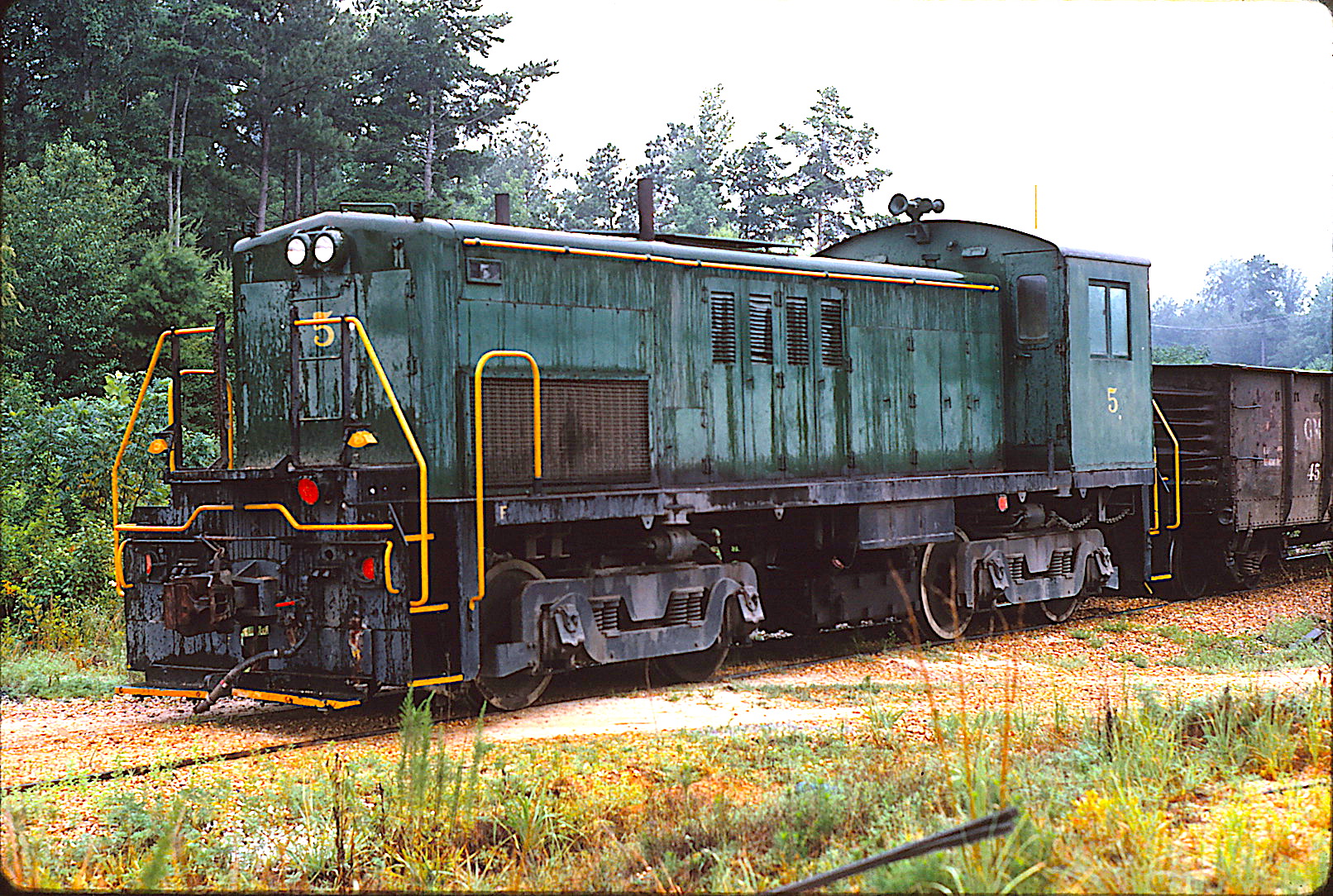
Standard Sand & Gravel #5 (ex-USA #1281 one-of-a-kind diesel-hydraulic)
Keith Ardinger photo **
|
Baldwin Lima Hamilton -- RS4TC (61-ton)
- End-cab with front & rear roof overhang
- Horizontal twin-beam headlight at top of nose
- Radiator area above walkway at side of hood
- Frame with end platforms and staircase steps
- Two four-wheel trucks
- Handrails along hood above radiator vents
- Designed during Korean War (74 units)
Footnote: Although these units carry Whitcomb serial numbers, they were built at the BLH
plant at Eddystone, PA. based on a military spec that had adopted a Davenport model DE-48
#4000 design / engineering concept -- (per UtahRails)
|

U.S. Navy #65-00646
(No photo available)
|
Brookville Equipment Corp. -- Diesel-Hydraulic (45-Ton)
- End-cab with large front roof overhang
- Large radiator area with center spline
- Vertical twin-bean headlight at top of center spline
- Frame with end platforms and staircase steps
- Two four-wheel trucks
- Sliding coupler for tight curves
|
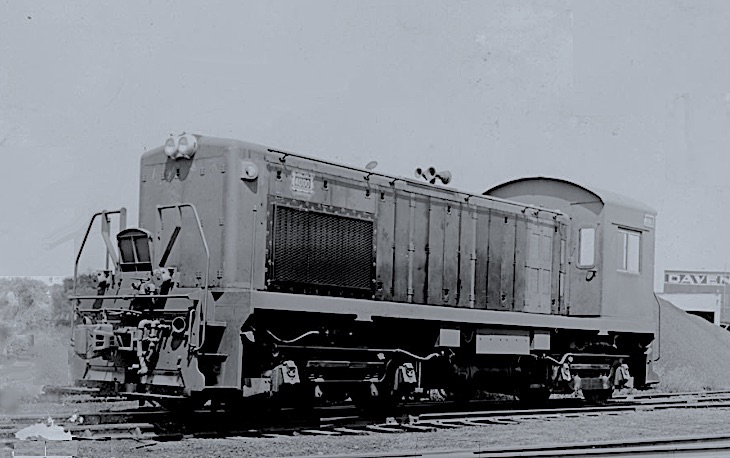
U.S. Army #4000 at Davenport Plant
Photo courtesy of Ft. Eustis Military Railroad
|
Davenport Locomotive works -- RS4TC (prototype)
- End-cab with front & rear roof overhang
- Twin-beam headlight where hood comes to a peak
- Radiator area taller than production models
- Marker light rather than number-boards
- Two four-wheel trucks
- Horizontal handrails above engine access doors
- Only one built
|
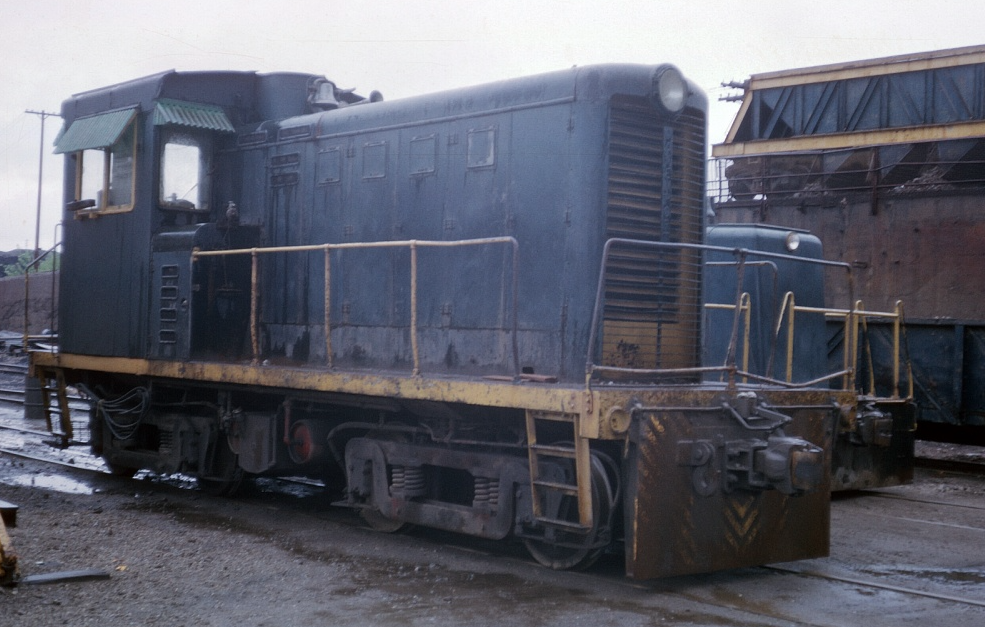
Illinois Slag & Ballast (ex-U.S. Army #7221)
Marty Bernard photo
|
Davenport Locomotive works -- 45-ton
- End-cab with front & rear roof overhang
- Hood with button-hole vents
- Large radiator area with center spline
- Headlight at top of center spline
- Compressor housing on walkway (engineer side)
- Frame with end platforms and ladder steps
- Two four-wheel trucks
- Only nine built (1942)
|
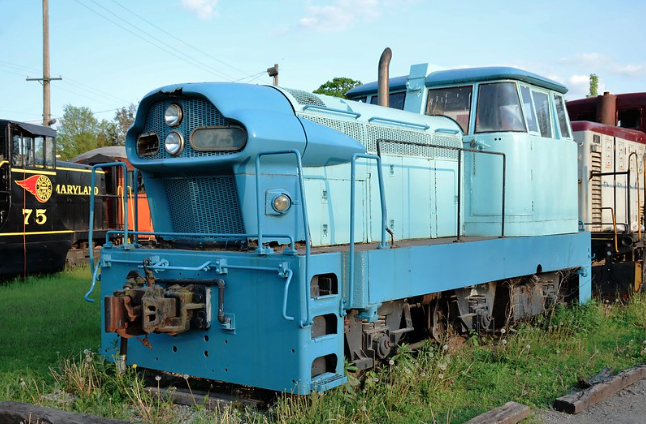
Southern Michigan Railroad (in Clinton)
Earl C. Leatherberry photo
Blank
|
General Motors Diesel (London) -- GMDH-3
- Futuristic Appearing diesel hydraulic
- Turret-type end cab with 360-visibility
- Twin-beam headlight and numberboards in automotive-type cluster
- Short walkways along hood
- Six-wheel chassis
- Only one built (1960)
|
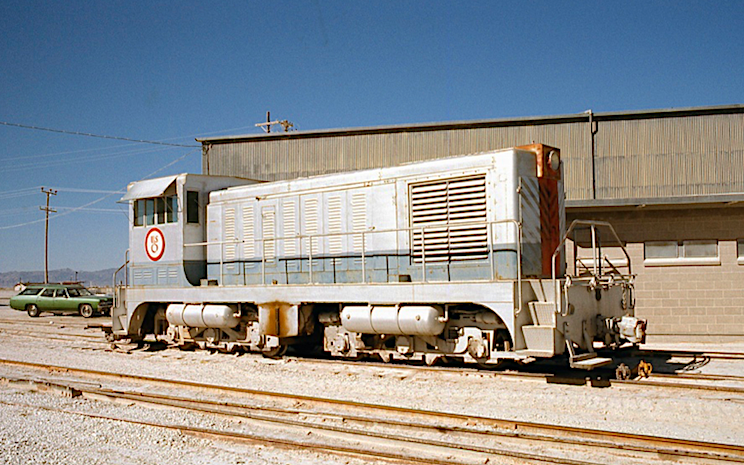
U.S. Gypsum #1203 at Plaster City, Caliornia in March 1980
Tom Hirsch photo
Blank
|
H.K. Porter -- 80-tonner (& 70-tonner)
- End cab with roof overhang, front and rear
- Large radiator shutters at side of hoods
- Thick frame with end platforms
- Two six-wheel trucks
- Twin-beam headlight at end of hood clerestory
- Only one built
Note: Only two 70-tonners built; they are differentiated by their 4-wheel trucks (vs 6-wheel),
no clerestory on hood roof, and lack of radiator shutters on side of hoods.
|
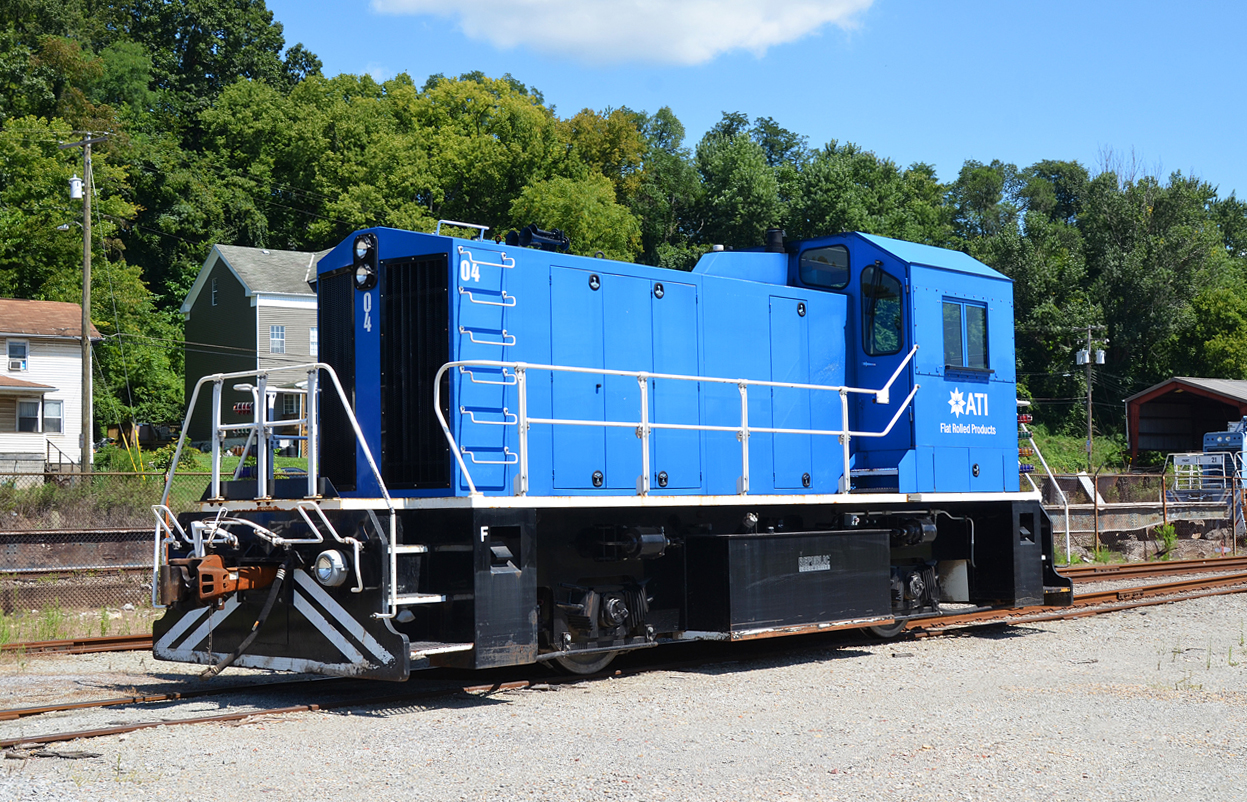
ATI #04 8 Nov. 2019 at Brackenridge, PA
Bill Kalkman photo
Blank
|
Republic Locomotive Co. -- RX500 (72-ton)
- End cab with angular roof
- Large radiator area with center spline
- Vertical twin-bean headlight at top of center spline
- Thin frame with end platforms and staircase steps
- Rigid frame with Two-axles
- Shrouded exhaust stack
|
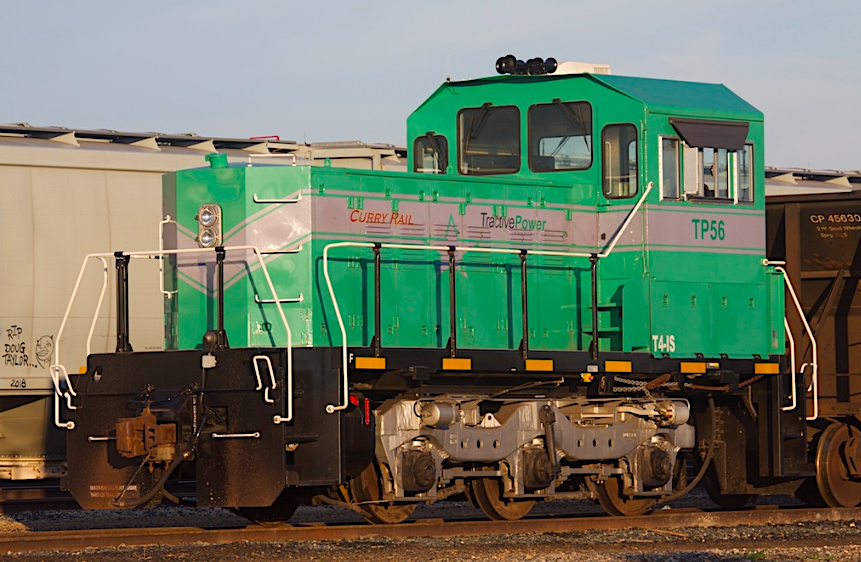
Curry Rail TP56 at Winnipeg, Manitoba
A. Ross Harrison photo
|
Tractive Power -- 56-Tonner
- End cab (shares a common car-body w/70-tonner)
- Standard switcher cab
- Low-profile hood
- Angular nose with twin-beam headlight
- End platforms, front & rear
- Single recycled three-axle HTC truck
|
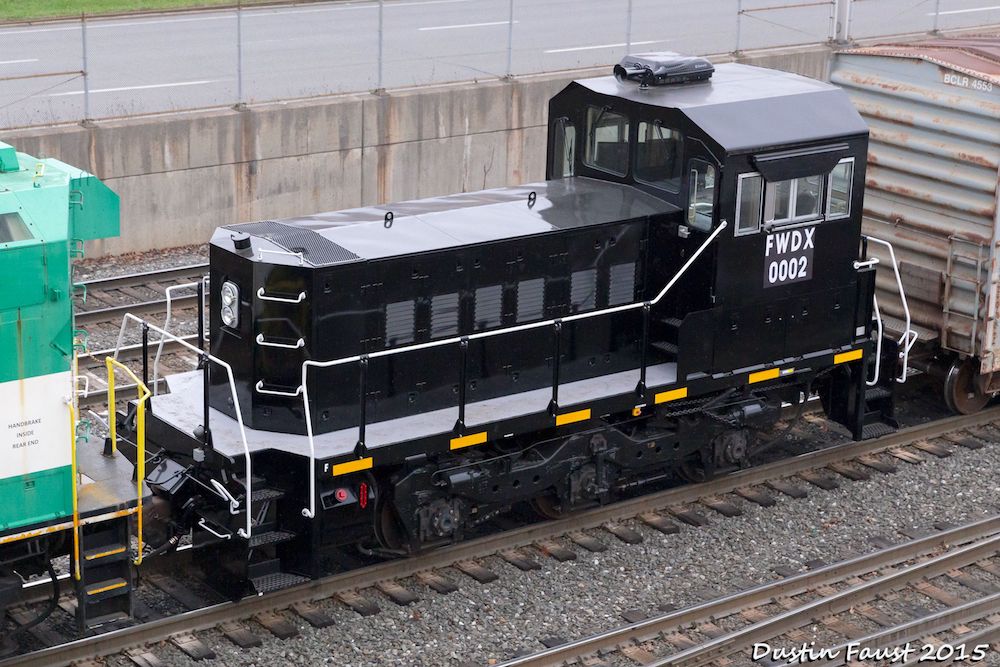
FWDX TP70 at Hollidaysburg, Pennsylvania
Dustin Faust photo
|
Tractive Power -- 70-Tonner
- End cab (shares a common car-body w/56-tonner)
- Standard switcher cab
- Low-profile hood
- Angular nose with twin-beam headlight
- End platforms, front & rear
- Single recycled HTC truck (three-axle)
|
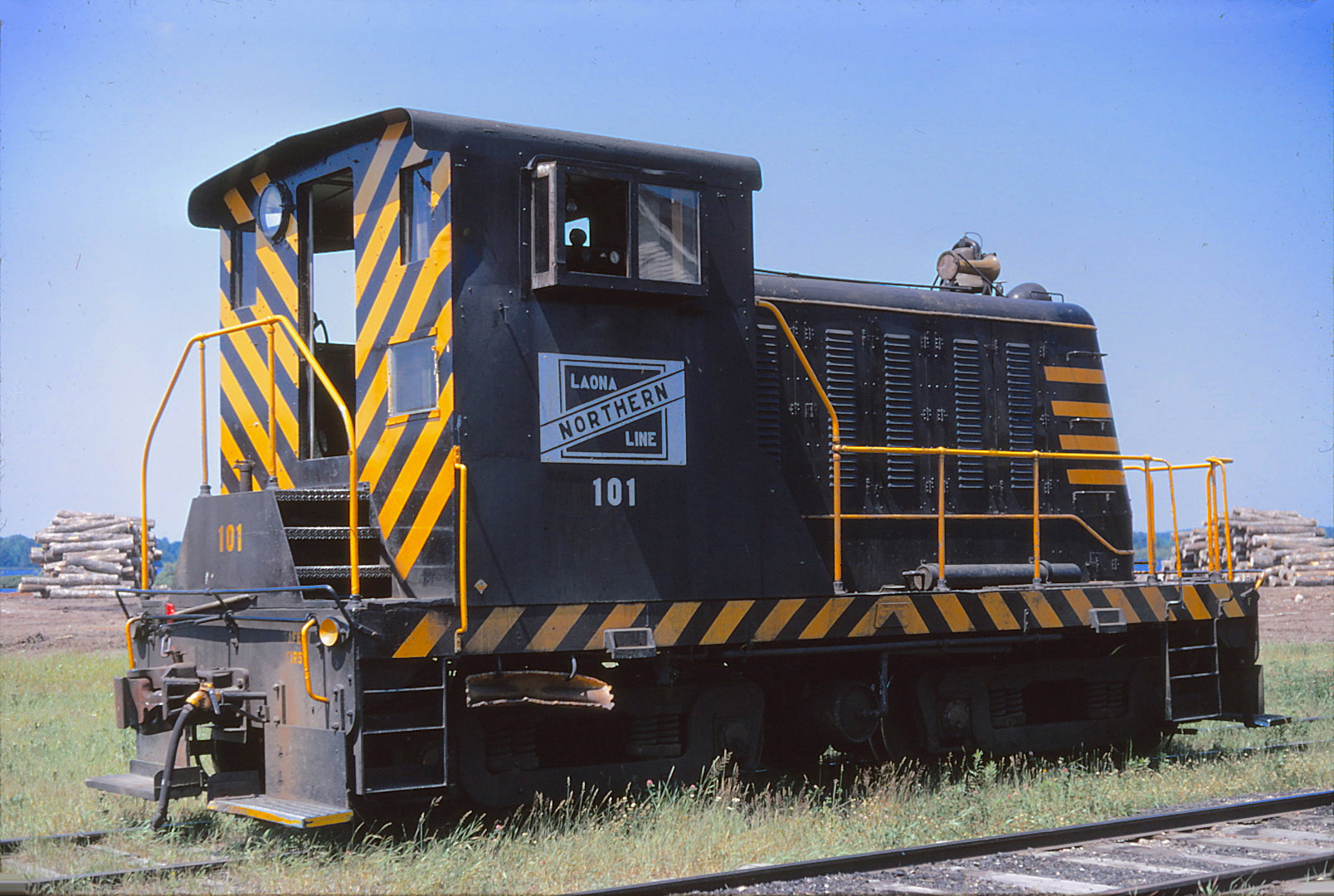
Laona & Northern 101
Denny Custer photo **
Blank
|
Vulcan Iron Works -- 45-Tonner
- End cab with roof overhang, front and rear
- Elevated cab with three steps
- Radiator slopes significantly forward
- Thick frame with end platforms
- Headlight above radiator
- Shrouded exhaust
- Two four-wheel trucks
|
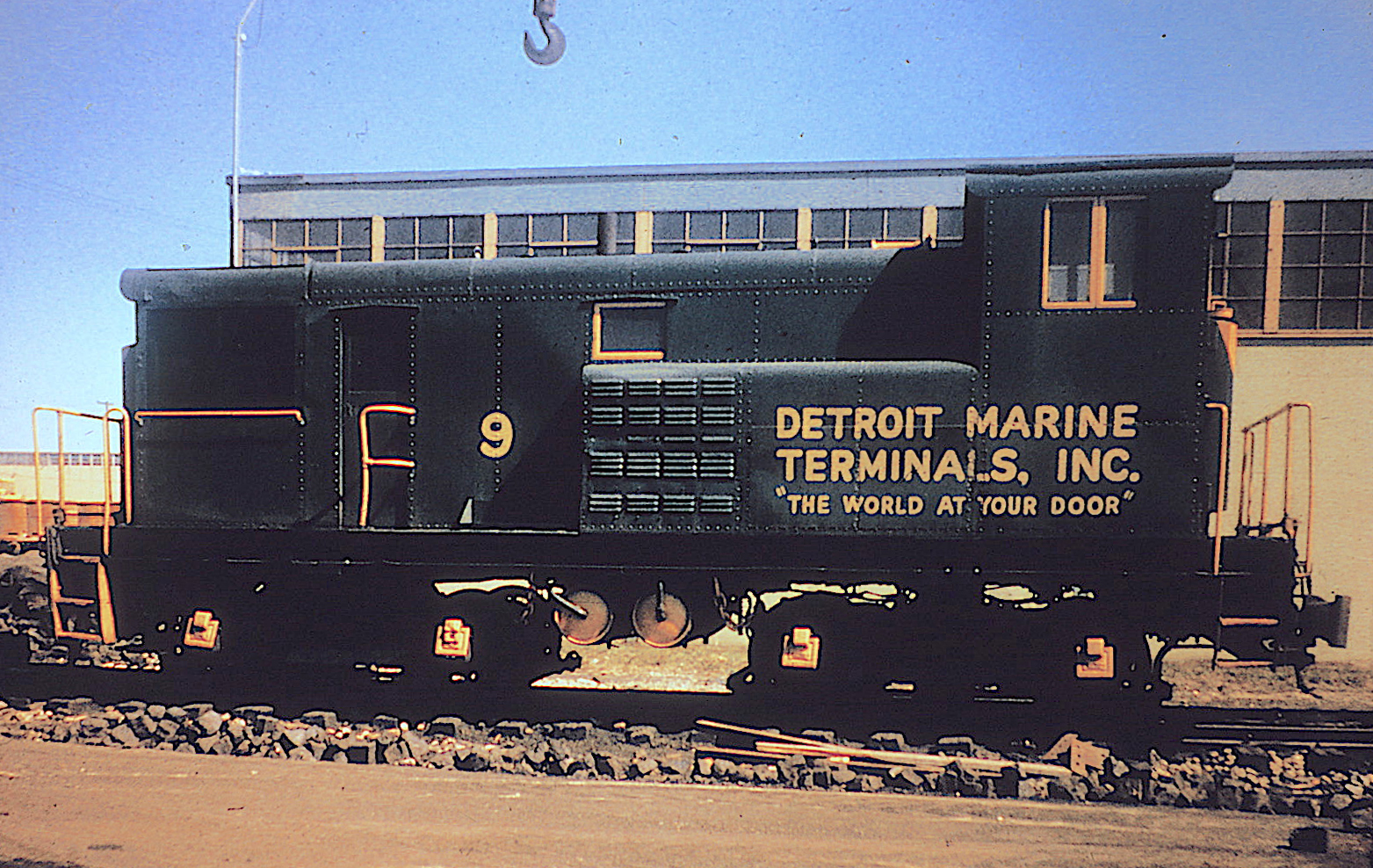
Detroit Marine Terminal #9 (ex-Great Lakes Steel #3)
Ray Sabo photo **
|
Westinghouse Manufacturing Co -- "Visibility cab"
- Boxy appearance with slightly raised cab
- Sculptured hood with partial shoulder
- Engine access door 1/3 of the way along hood
- End platforms, front & rear
- Ladder steps at end of frame
- Two four-wheel trucks
- Only 3 built (with this configuration, earlier versions very boxy)
|
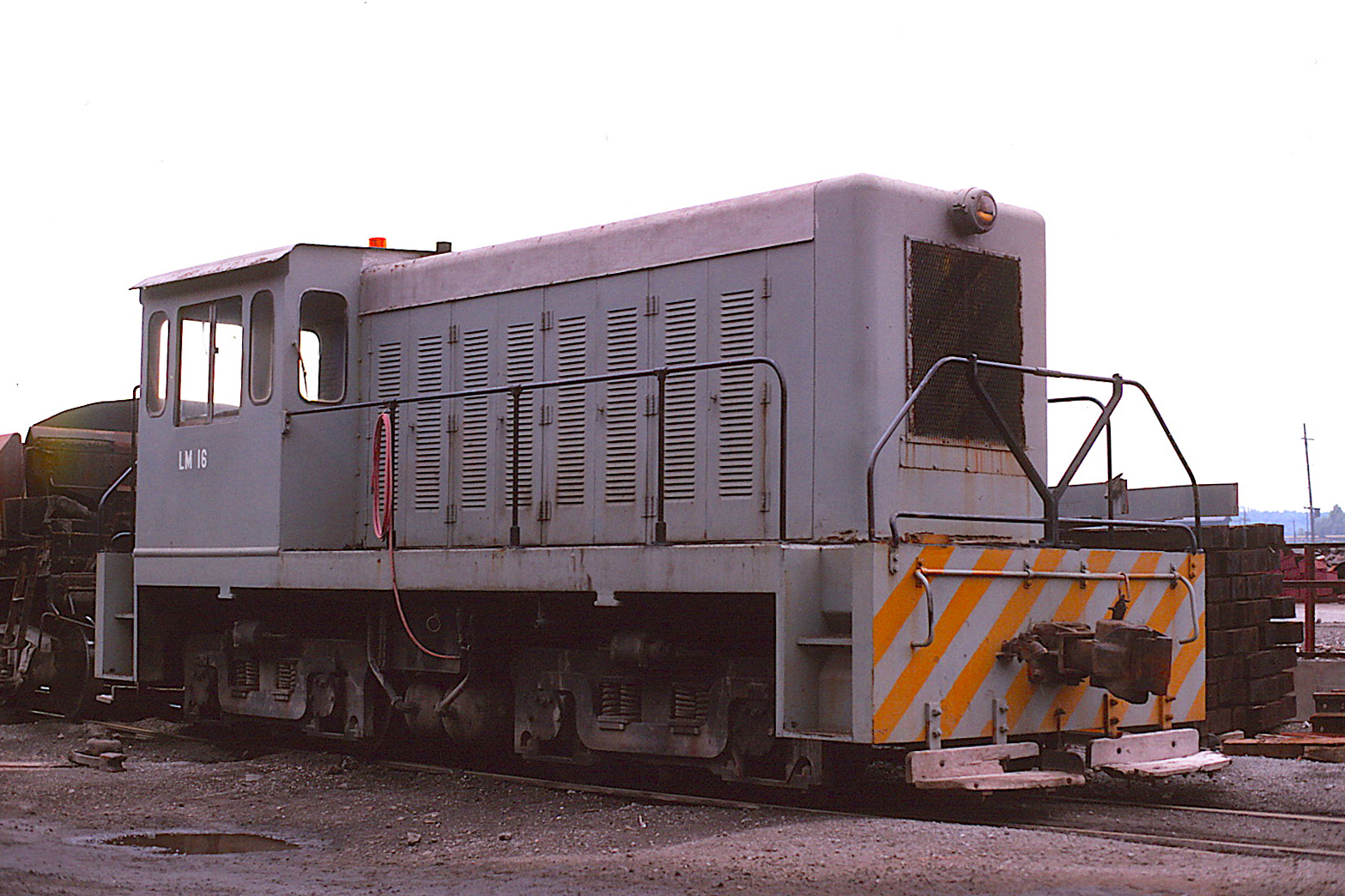
Standard Slag #LM16
Joe Brockmeyer photo **
|
Whitcomb Company -- S3 (50-Tonner)
- End cab roof and hood height almost same dimension
- Headlight above radiator area
- Eight engine access doors with louvers
- End platforms with staircase steps
- Two four-wheel trucks
- Only five built
|
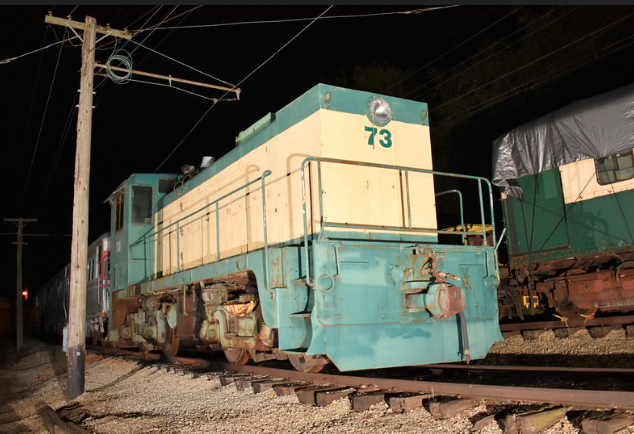
Warren & Saline River #73
Robby Gragg photo
|
Whitcomb Company -- 70/75-Tonner
- End cab
- Radiator on roof of long hood
- No louvers or vents in hood doors
- End platforms, front & rear
- Staircase steps at end of frame
- Two four-wheel trucks
- Only 20 built: Three 70-tonners / seventeen 75-tonners
|
Notes and Reference sources:
- Critters, Dinkys & Centercabs by Jay Reed
- The Second Diesel Spotters Guide by Jerry A. Pinkepank
- Locomotive Encyclopedia (1952 & 1956) by Simons-Boardman
- Utah Rails website by Don Strack
** Photo from R. Craig collection
|
| Formatted by: R.Craig
New: 2 February 2020
|













